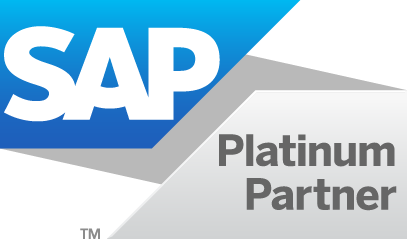In the realm of the manufacturing industry, optimizing efficiency and ensuring top-notch production quality stand as paramount concerns. You need to keep track of every facet of this industry to ensure everything is in order and help analyze the performance for further improvement.
This begs the question — how do you manage everything from production analysis to employee performance in large enterprises?
Thanks to Enterprise Resource Planning (ERP) systems, the days of old registry systems and dispersed departments are over. Now, a solitary system grants access to the entire landscape, offering heightened transparency that fosters impeccable synchronization through automated workflows.
Dive deeper to discover the top manufacturing ERP systems for large enterprises.
How a State-of-the-Art Manufacturing ERP System Revolutionizes Large Enterprises?
Once you set out to revolutionize your large-scale enterprise by implementing an ERP system, this could be a pivotal stride in advancing the manufacturing industry. Let’s discover how a successful ERP system could benefit a large enterprise.
1. Interdepartmental Transparency
As a company grows, it naturally sprouts more departments. This holds especially true for large enterprises that adopt a hierarchical structure. Such an arrangement knits the different departments together, creating a web of interdependence.
In a sprawling industry like manufacturing, you’d find a multitude of departments like material procurement, quality assurance, transportation, and security, just to name a few.
Imagine each of these departments running their own separate systems. It’s like having a bunch of islands, each with its own way of doing things. But this setup can lead to a mess of redundancy or inaccuracy.
That’s where the ERP system steps in. It’s like the thread that weaves these islands into a unified fabric. With ERP, the departments collaborate seamlessly, sharing information and coordinating efforts. Bringing the entire enterprise onto the same page and ensuring that the gears of work turn efficiently.
2. Optimized Workflow
Once you incorporate ERP into your enterprise, it will speed up the workflow. If there is an important update that needs to reach every corner of your organization, instead of drafting endless emails or dialing countless extensions, you can update all departments of the organization with just a few clicks.
It not only speeds up the task but also ensures more accuracy, leaving no room for confusion or mix-ups.
Everyone stays up to date and on the same page with the ongoings of an enterprise, reducing the chances of error to a greater extent. It keeps everyone in the loop and ensures better performance of the enterprise as a whole.
3. Enhanced Inventory Management
Accurate inventory tracking helps prevent stockouts and overstocking. ERP systems provide insights into inventory levels, demand trends, and reorder points, optimizing inventory management and reducing carrying costs.
4. Effective Resource Allocation
ERP systems help allocate resources more effectively by aligning production schedules with available materials, labor, and machine capacities. This minimizes waste and ensures optimal resource utilization.
5. Quality Control and Compliance
Incorporating a successful ERP system into your manufacturing industry can enforce standardized quality control processes, ensuring products meet regulatory and quality standards. They also help trace and track components and materials, aiding in recall management if necessary.
6. Human Resource Management
Enterprise resource management is not only limited to managing workflows or materials within an enterprise but also helps manage the workforce. You can keep track of employees’ performance, payrolls, and tracking to ensure a favorable working environment.
Top Manufacturing ERP Systems for Large Enterprises
The process of selecting an appropriate enterprise resource planning system within the context of the manufacturing industry plays a crucial role in fulfilling the company’s needs, which is why it should be chosen very carefully by making sure that it sits well with your company’s requirements.
We have narrowed down some of the top manufacturing ERP systems for large enterprises.
1. SAP S/4 HANA
SAP released its transformative S/4 HANA in February 2015, an acronym denoting Suite High-performance ANalytic Appliance. This release marked a significant milestone in SAP’s continuous efforts to enhance its ERP strategy.
This enterprise resource planning system allows seamless day-to-day processes for large-scale businesses.
It offers multiple deployment options according to business needs and can be deployed on-premises or in the cloud; a hybrid model is also applicable if required.
This ERP solution affords businesses a range of deployment possibilities tailored to their specific operational requirements. It can be implemented on-premises or seamlessly integrated into cloud infrastructure. A hybrid deployment model remains a viable and adaptable option for organizations seeking a harmonious convergence of both approaches.

Modules and Functionality of SAP S/4 HANA:
- Financial Management
- Quality Management
- Inventory Management
- Plant Maintenance
- Production Planning
- Sales and Distribution
- Logistics Information Systems
- Supply Chain Management (SCM)
- Customer Service (CS)
- Materials Management (MM)
Pros of SAP S/4 HANA
- Designed for intricate and large organizations. It streamlines processes across various locations and business entities, making it ideal for industries like manufacturing.
- SAP invests significantly in research and development for S/4HANA. It incorporates the latest technologies like AI, machine learning, and advanced analytics, ensuring it’s at the forefront of ERP functionality.
- S/4HANA operates on the HANA in-memory database, resulting in faster processing and enabling real-time analytics and transactions. This is vital for organizations that demand instant financial reporting.
Cons of SAP S/4 HANA
- The complexity of S/4HANA might not be suitable for organizations with simple needs. It’s intricate and demands substantial resources to be implemented and maintained effectively.
- S/4HANA’s advanced features come at a cost. Implementation and operational expenses can be considerable, making it more fitting for organizations with ample resources.
- Due to its distinct architecture and capabilities compared to older SAP ERP systems, finding skilled developers and administrators can be a challenge.
- The intricacy of S/4HANA amplifies the risk of failed implementations if not managed meticulously or if requirements are unclear.
2. Microsoft Dynamics 365
Microsoft launched its product line of enterprise resource planning systems in 2016 under the name Microsoft Dynamics 365. It gained popularity among manufacturing businesses due to the degree of flexibility in its ERP system.
Microsoft stays ahead of the game with burgeoning technologies and has invested in Artificial Intelligence and Machine learning in its products, including Dynamics 365.

Modules and Functionality of Microsoft Dynamics 365
- Sales
- Customer Service
- Marketing
- Commerce
- Supply Chain Management
- Human Resource Management
- Finance and Operations
- Project Management
Pros of Microsoft Dynamics 365
- Integration of Microsoft products, which has a greater familiarity among users.
- The low-code platform is easy to use and configure according to your requirements.
- The inclusion of artificial intelligence allows for automation capabilities.
Cons of Microsoft Dynamics 365
- Limited data storage and you have to pay for extra storage, which adds to the solution’s total cost.
- The user interface of Microsoft Dynamics 365 is not very user-friendly for some users.
- This ERP system can sometimes become laggy and bother users with slow loading speeds; a strong, stable internet connection is required.
3. Oracle ERP Cloud
Oracle came up with its cloud ERP in 2012, which allowed organizations to manage various aspects of their business operations in a unified and efficient manner.
Modules and Functionality of Oracle ERP Cloud
- Financial Management
- Project Management
- Procurement
- Risk Management and Compliance
- Enterprise Performance Management (EPM)
- Supply Chain and Manufacturing
- ERP Analytics
Pros of Oracle ERP Cloud
- Cloud-based ERP is updated quarterly, so you don’t have to worry about outdated technology.
- It comes with an advanced risk management feature that has a centralized and secured risk control repository, allowing you to reduce the risks related to financial reporting.
- Oracle Cloud ERP receives regular updates and enhancements from the provider, ensuring access to the latest features and security patches.
- This ERP allows for easy management through one single platform.
Cons of Oracle ERP Cloud
- Cancellations and modifications are sometimes tricky in Oracle Cloud ERP.
- Some users find difficulties with location-based access control.
- The process of integrating with various systems is intricate, often requiring a significant degree of complexity. It often becomes necessary for the other systems to undergo adaptation in order to seamlessly align with the Oracle environment.
4. Sage X3
A British software house Sage Group introduced its ERP solution Sage X3 in 2000. It offers on-premise and cloud solutions accessible in multiple languages and allows multiple languages for diverse use.

Modules and Functionality of Sage x3
- Production Management
- Supply Chain Management
- Financial Management
- Salesforce Integration
- Process Manufacturing
- Distribution Control
- Services
- Discrete Manufacturing
Pros of Sage X3
- The user-friendly interface of Sage X3 makes it easier for users to access this ERP system.
- Sage X3 has made it easier to import and export data.
- It is available in multiple languages, allowing better accessibility across borders.
Cons of Sage X3
- You would have to hire a third-party vendor to make customizations to this system.
Ending Note
The manufacturing industry has evolved significantly with the advent of modern ERP systems, ushering in a new era of efficiency and collaboration for large enterprises. The challenges of complex tasks and handling a large-scale business are no longer daunting with the help of advanced ERP systems.
As large enterprises strive for excellence in production, quality control, and resource management, the right ERP system stands as a cornerstone, paving the way for a more streamlined, interconnected, and competitive manufacturing industry.
Choosing the right ERP for your industry from the list of top manufacturing ERP systems for large enterprises is a crucial step in digitalizing the industry, and it needs to be done very carefully so that you select the best one for your enterprise needs.














